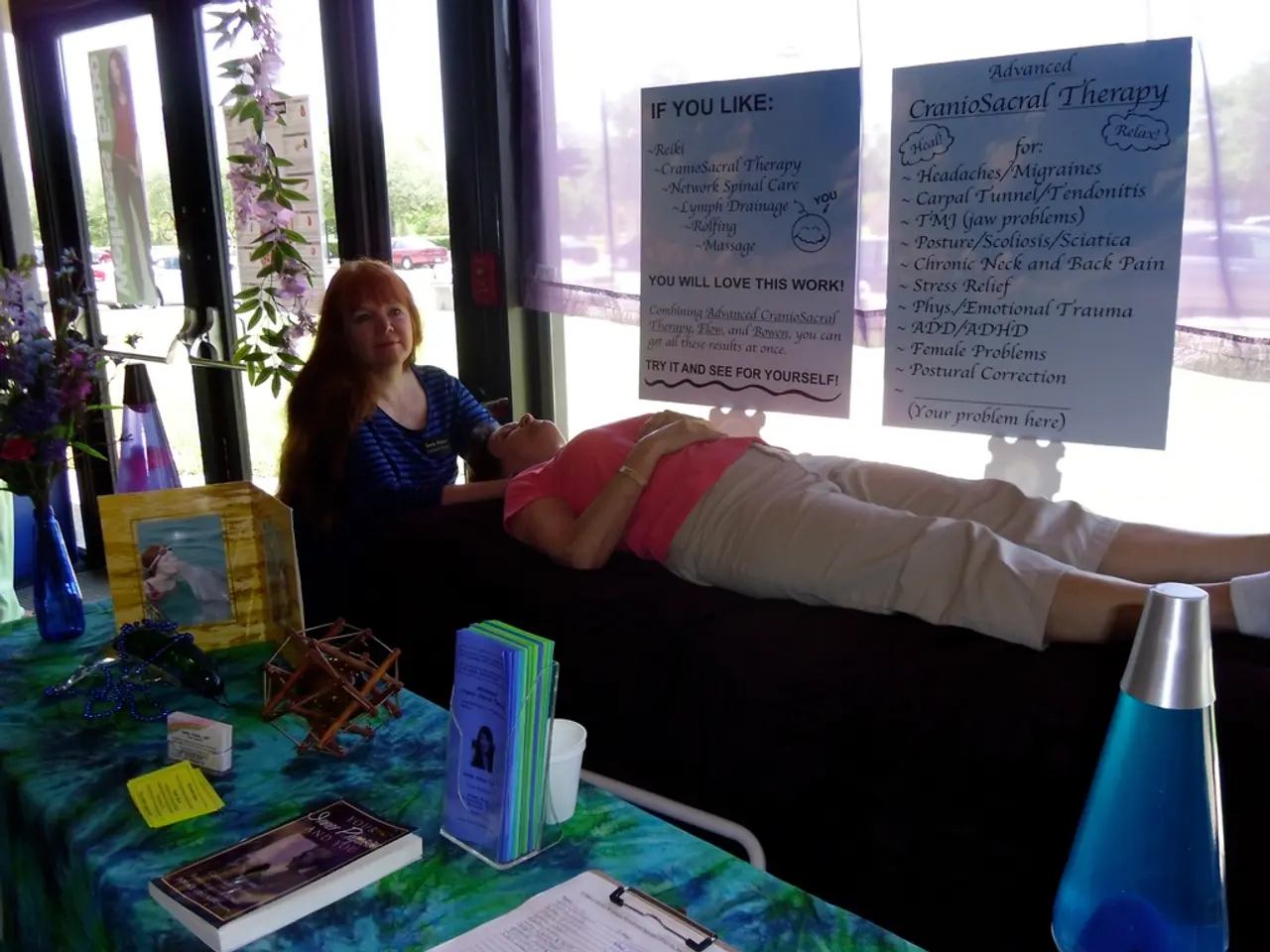Women and Ankylosing Spondylitis: Incidence, Symptoms, and Additional Information
Ankylosing spondylitis (AS), a type of arthritis that causes inflammation in the joints of the spine, lower back, and pelvis, affects around 3 million people in the United States. While historically considered a health issue mainly affecting males, recent research indicates that it is nearly as prevalent in females.
However, the symptoms and disease progression can differ significantly between males and females. Males with AS tend to have more severe inflammation, with greater spinal involvement, leading to symptoms like significant back pain, stiffness, spinal fusion, and deformity. Females, on the other hand, may experience less severe spinal symptoms but report higher overall symptom burden and pain, sometimes with more peripheral joint involvement or extra-articular symptoms.
Treatment approaches are broadly similar for both sexes but may need adjustment to address differences in symptom patterns and impact. Medications such as Non-Steroidal Anti-Inflammatory Drugs (NSAIDs) and biologics like TNF inhibitors and interleukin-17 inhibitors are used to reduce pain and inflammation. Physical therapy, critical for both sexes, focuses on maintaining spinal flexibility, posture, and muscle strength. Given females may have more peripheral symptoms or differing pain experiences, therapy might be tailored accordingly.
Lifestyle modifications, such as regular exercise, posture maintenance, and smoking cessation, are recommended for all patients. Surgery is rarely needed but more common in severe deformity or hip joint damage.
While the core symptoms and treatments overlap, females may have a higher symptom burden with atypical or peripheral symptoms and often require more careful clinical evaluation to ensure proper diagnosis and management. The inflammation that occurs with AS can lead to chronic pain and difficulty with mobility.
Complications of AS can include inflammation of the eyes, spinal vertebrae fusing, compression fractures, reduced lung capacity, cardiac system problems, fatigue, pain during the night, trouble sleeping or staying asleep, and a reduced quality of life.
It's important to note that having AS does not affect fertility or reproductive health, but a person with AS who is planning to become pregnant should discuss family planning and care with a rheumatologist. Some treatments for AS, such as methotrexate or NSAIDs, may be harmful during pregnancy.
The exact cause of AS is still unknown, but genetics may be partially responsible. Most people with AS have a gene that makes a protein called HLA-B27. Risk factors for AS include the HLA-B27 marker gene, an age of 17-45, a family history of AS, bowel inflammation, changes in gut bacteria, recurrent gastrointestinal infections, and inflammatory bowel disease.
AS symptoms may continue throughout a pregnancy, remaining stable or worsening. In some people, the symptoms may lessen. Spinal swelling can make it difficult for some people with AS to receive an epidural during the delivery.
The belief that AS mainly affects males likely resulted from an underrepresentation of females in related research. Imaging technology and the standards for diagnosis may account for some of the delay in diagnosing AS in females.
In conclusion, while AS affects anyone, regardless of sex, it's crucial to understand the differences in symptoms and disease progression between males and females to ensure proper diagnosis and management. The treatment principles are similar but must be personalized to address these differing clinical realities.
Bones, pain, and inflammation are common in ankylosingspondylitis (a chronic musculoskeletal disease), with a higher prevalence in the back and spine. While males may exhibit more severe spinal symptoms, females often report higher overall symptom burden and pain with more peripheral joint involvement.
Treatment for ankylosingspondylitis includes medications like NSAIDs and biologics, physical therapy, and lifestyle modifications such as exercise, posture maintenance, and smoking cessation. However, given females may have atypical or peripheral symptoms, therapy might be tailored to cater to their unique needs.
The exact cause of ankylosingspondylitis is still unknown, but it may be partially responsible due to genetics, particularly the presence of the HLA-B27 protein. Risk factors include age, family history, bowel inflammation, changes in gut bacteria, recurrent gastrointestinal infections, and inflammatory bowel disease.
While having ankylosingspondylitis does not directly impact fertility or reproductive health, pregnant women with this condition should consult their rheumatologist regarding family planning and potential harmful effects of certain treatments during pregnancy.
Complications of ankylosingspondylitis can include chronic pain, difficulty with mobility, inflammation of the eyes, spinal vertebrae fusing, compression fractures, reduced lung capacity, cardiac system problems, fatigue, pain during the night, trouble sleeping or staying asleep, and a lower quality of life.
Mental health issues like stress, anxiety, and depression are also common in people living with ankylosingspondylitis, making it essential to prioritize mental health, along with physical health and wellness, for effective management and overall well-being.




